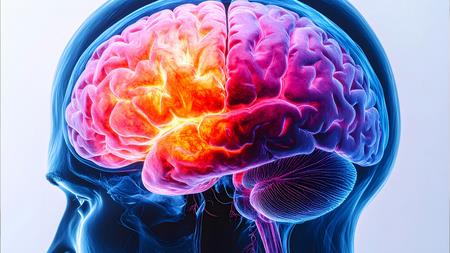
Climate, Temperature, Urban Water Stagnation Behind Brain-Eating Amoeba Infections In Kerala: Experts
Amoebic encephalitis is a rare but fatal central nervous system infection caused by free-living amoebae, Naegleria fowleri, also known as the brain-eating amoeba, found in freshwater lakes and rivers.
There are two types of amoebic encephalitis, namely primary amoebic meningoencephalitis (PAM) and granulomatous amoebic encephalitis (GAE).
Kerala has reported 41 cases of amoebic meningoencephalitis this year, and 18 active cases are currently under treatment in the state.
“Unlike common infections such as typhoid and hepatitis A, which occur when infected individuals spread bacteria or viruses through water, primary amoebic meningoencephalitis (PAM) is caused by certain amoebae that naturally live in our environment,” Dr Rajeev Jayadevan, Chairman, Scientific Committee, IMA Cochin, told IANS.
“The increase in cases could be attributed to swimming in untreated and fresh water, and a change in climate, higher water temperatures, urban water stagnation, which provide a more favorable condition for the organism to travel,” added Dr. Anshu Rohatgi, Vice Chairperson of Neurology, from a leading city-based hospital.
There are numerous species of free-living amoebae, but only a few are capable of causing the brain infection. These amoebae are found in moist soil, stagnant water, biofilms inside pipes and taps, water tanks, rivers, ponds, and swimming pools.
Notably, the experts called out against putting water in the nose as the amoebae that cause brain infection enter the body through the nose.
“The nose is meant for the flow of air, not water. The cavity of the nose is separated from the brain only by a thin piece of bone -- through which these amoebae can sometimes traverse. Therefore, the best strategy to prevent this rare infection is to avoid putting water inside the nose, and to minimise water entry into the nose while swimming,” said Jayadevan, urging the need to educate people on this.
“N. fowleri is not transmitted through drinking contaminated water or person-to-person contact. It only travels through water that has not been treated. An Ayurvedic technique -- neti -- where the water is not properly treated can also cause the infection,” Rohatgi added.
Meanwhile, Kerala Health Minister Veena George on Monday urged the people of the state to ensure water sources are kept clean and safe. She also announced a mass public campaign to prevent the spread of the rare but fatal brain infection.
“Removing these amoebae from our environment is neither feasible nor possible. While keeping water clean is important for preventing many infections, it will not eliminate amoebic meningoencephalitis. This is because when threatened, amoebae can transform into a resistant cyst form and re-emerge once threats subside,” Jayadevan said.
He urged early recognition of symptoms such as fever, headache, and vomiting to enable prompt diagnosis and treatment.

Legal Disclaimer:
MENAFN provides the
information “as is” without warranty of any kind. We do not accept
any responsibility or liability for the accuracy, content, images,
videos, licenses, completeness, legality, or reliability of the information
contained in this article. If you have any complaints or copyright
issues related to this article, kindly contact the provider above.

















Comments
No comment